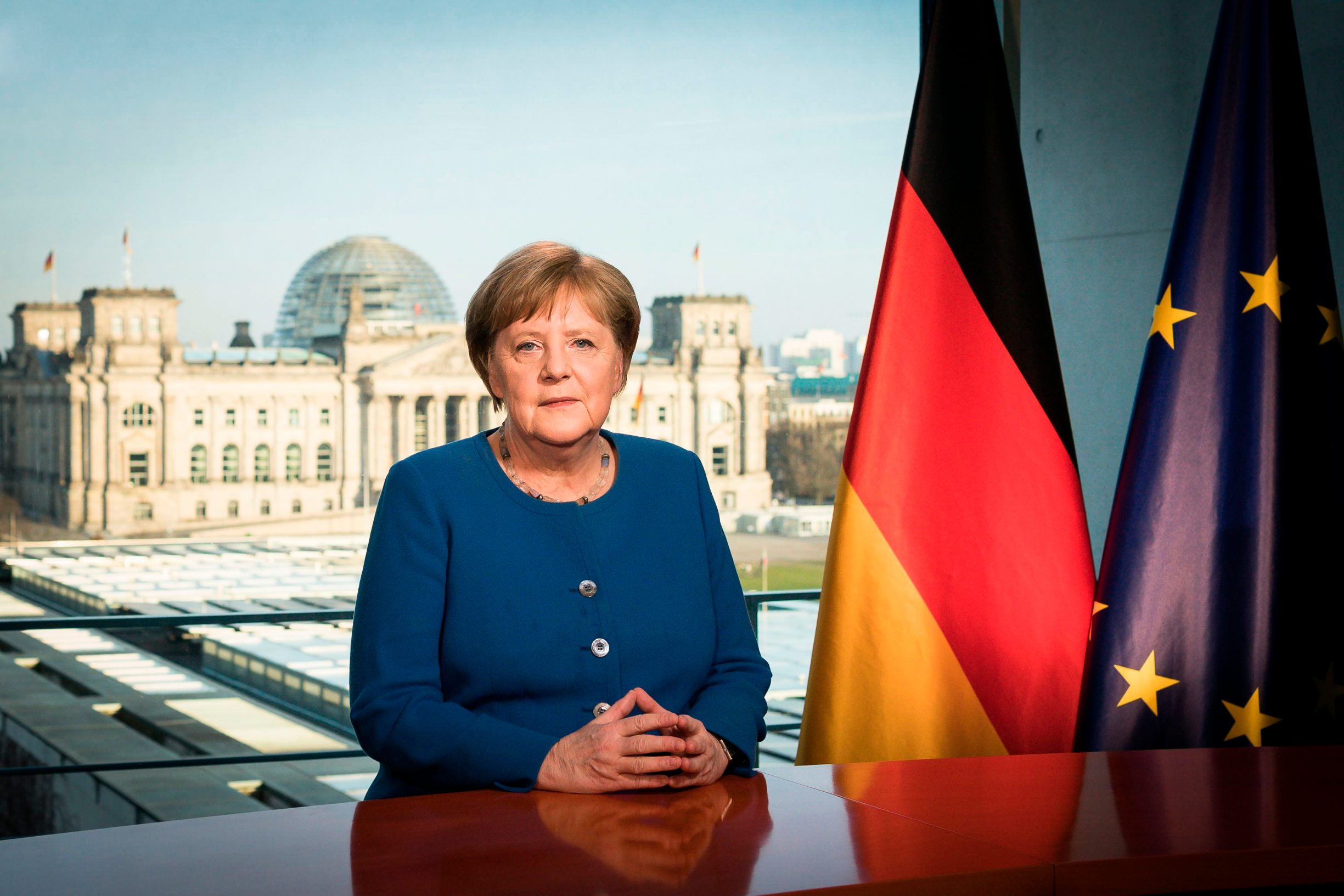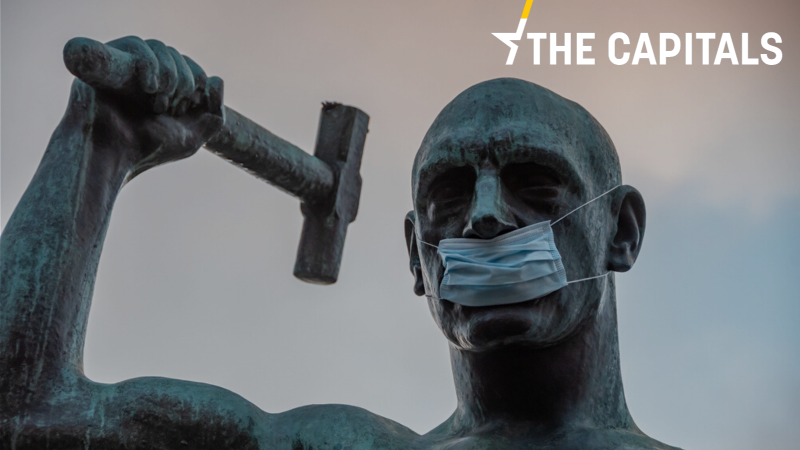
Before you start reading today’s edition of the Capitals, feel free to have a look at yesterday’s The Brief:‘Whatever it takes’ to give EU the health competence” by Sarantis Michalopoulos.
EURACTIV has learned that the European Commission has been warning the member states since early February to brace for a coronavirus pandemic.
**To stay up-to-date on everything to do with the coronavirus across the capitals, feel free to check out EURACTIV’s comprehensive overview, which is regularly updated with the help of our network of offices and media partners.**
In today’s news from the Capitals:
NORDICS
Nordic family showing cracks in COVID-19 response. The normally harmonious and unified Nordic community of Sweden, Finland, Denmark and Norway have responded differently to the COVID-19 health crisis and have started to play the ‘blame game’, which has come as a surprise to observers and politicians alike. While Denmark and Norway were quick to adopt tough measures, Finland was late to the party as it followed Sweden’s lead for a long time.
EURACTIV’s Pekka Vänttinen looks at how things unfolded in the north.
///
EU INSTITUTIONS. As part of their remote working programme, the European Commission has had to make a number of changes to how employees are able to carry out their work from distance.
There have been concerns that the security of internal networks could be compromised with so many employees working remotely, and in this vein, the executive is constantly ‘monitoring’ the situation. Samuel Stolton has the detail.
BERLIN
Ambitious government plans. As the number of COVID-19 cases reached 8,757 on Tuesday (17 March), the German government rolled out two new plans to respond to the spread of virus, including plans to bring Germans stuck in foreign countries home and measures to drastically increase the country’s medical capacity. EURACTIV’s Sarah Lawton has the details.
To keep up-to-date with coverage from EURACTIV Germany: click here.
///
BRUSSELS
Coronavirus lockdown (at last). Belgium, which had been criticised for its initially slow response to the coronavirus outbreak, declared a lockdown to be applied to the whole country starting at noon on Wednesday (18 March) until 5 April, following the example of several European countries, including neighbouring France, which took the same decision earlier this week. Alexandra Brzozowski had a closer look at the full list of measures.
///
VIENNA
Telecom operator sends citizens’ movement data to the government. Telecom operator A1 started voluntarily providing the data of its users to the government, without them knowing. The telecom operator wanted to assist the government in monitoring the effectiveness of its measures which aim at keeping citizens at home. EURACTIV Germany’s Philipp Grüll looks at how A1 justified the move.
NORTHERN EUROPE
DUBLIN
Irish ‘surge’ to come. In a special broadcast on Tuesday (17 March) evening, Taoiseach Leo Varadkar warned Irish citizens that the situation the country currently faces “is the calm before the storm and the surge will come”, as 69 new cases were identified in the Republic, bringing the overall number to 292. Varadkar said on Tuesday evening that by the end of the month, there could be as many as 15,000 cases in Ireland and that the crisis is likely to continue well into the summer. (Samuel Stolton | EURACTIV.com)
///
LONDON
Brexit talks cancelled due to COVID-19 crisis, UK confirms. UK and EU officials on Tuesday (17 March) cancelled the second round of post-Brexit trade talks planned for this week because of the ongoing coronavirus crisis. Benjamin Fox has the full story.
Also read
- US, UK ‘going big’ in economic fightback against virus
- UK unveils ‘wartime’ €400 billion COVID bailout programme
EUROPE’S SOUTH
ROME
Corona-bonds. Italy’s PM Conte urged his European counterparts to consider extraordinary means, including emitting joint debt instruments in the form of corona-bonds, in order to trigger economic recovery and get out of the COVID-19 crisis. Gerardo Fortuna has the story: “Italian PM floats idea of ‘corona-bonds’ to restart EU economy“To stay abreast with the COVID-19 crisis situation in Italy, click here.
///
MADRID
Spain in quarantine and government approves mortgages moratorium. As the COVID-19 crisis worsens in Spain, the government has decided to mortgage moratorium for the families most affected by the economic crisis caused by the coronavirus pandemic, Government sources told EFE on Tuesday (17 March). The moratorium will free the families most affected by this crisis, including those who lose their jobs as a result of a temporary lay-off plan (Expediente de Regulación de Empleo, ERTE) from paying the bulk of the mortgage payment for a few months, Government sources told EFE. Official sources stressed it is highly probable the moratorium will be extended for several months or for the duration of the economic consequences of this new crisis.
In other news, military personnel from the Military Emergency Unit (Unidad Militar de Emergencias, UME), the Army and the Marine Corps have deployed 1,820 troops in 28 Spanish cities on Tuesday (17 March) to disinfect facilities and prevent big crowds, as means to fight the coronavirus pandemic and prevents further infections. EUROEFE’s Fernando Heller has more.
///
ATHENS
Doctors and nurses quarantined. 21 staff members of the Athens General Hospital “Hippocrates” are quarantined, as a doctor at the Otolaryngology Clinic was reportedly found positive to coronavirus.
Infectious disease researcher Nikolaos Sypas said the in-hospital spread of coronavirus affects doctors and nurses is a big problem and needs urgent solution. “That is why citizens should not come to the hospitals with light symptoms,” he said.
VISEGRAD
PRAGUE
Babiš faces criticism over bad crisis management. Czech media reported that general practitioners (GPs), dentists but also doctors in hospitals and other health care workers face severe lack of protective equipment despite the government’s claims that they have enough materials to deal with the COVID-19 crisis.
While Prime Minister Andrej Babiš apologised for the current situation for the first time on Tuesday (17 March) but emphasised that nothing more could be done as delivery contracts had been cancelled, Health Minister Adam Vojtěch started to blame hospitals for not ensuring protective equipment by themselves. Aneta Zachová looks into who could be responsible for this shortage of medical equipment.
///
BRATISLAVA
Kiska steps back. Former president and leader of the centre-right party For the People, Andrej Kiska, has announced that he will not assume his mandate as an MP, citing cardiac problems as the reason. But what will his future involvement within the party look like, especially given that his party is one of the four new coalition parties? EURACTIV Slovakia’s Zuzana Gabrižová looks into it.
///
BUDAPEST
The Hungarian authorities are refusing to make public information about the cities or regions where the new cases of COVID-19 have been registered, making it hard to know where in Hungary the disease is spreading. Read the full story written by EURACTIV’s Vlagyiszlav Makszimov.
To keep up-to-date with the latest developments in Hungary, read here.
NEWS FROM THE BALKANS
ZAGREB
New measures for the pandemic. The Croatian government has adopted 63 measures to prop up the economy throughout the coronavirus epidemic, while PM Andrej Plenković announced that further measures for the reduction of social contacts will be adopted in the foreseeable future. EURACTIV Croatia’s Tea Trubić Macan takes a closer look at the proposed measures.
///
SOFIA
The city of Bansko, a famous ski resort, has been on full lockdown since Tuesday, and the remaining 200 foreigners stranded there are expected to be evacuated on Wednesday. Bansko is the place with the highest concentration of coronavirus. The quarantine is expected to last 14 days. The total number of confirmed coronavirus cases was 81 on Wednesday (62 the previous day). One of the new cases concerns Kiril Domuschiev, a shipping tycoon, owner of the Ludogorets football club and of Nova TV, considered to be one of the three richest Bulgarians. Krassen Nikolov, chief editor of EURACTIV Bulgaria, has more.
///
BELGRADE
ODIHR discontinues election activities in North Macedonia and Serbia due to COVID-19. Election observation activities of the OSCE’s Office for Democratic Institutions and Human Rights (ODIHR) “are being temporarily limited in some places, as countries around the OSCE region restrict cross-border travel in response to increased health risks,” ODIHR said in a release on Tuesday (17 March).
“Other election observation activities planned in the coming period are still under consideration, pending further decisions by national authorities and the public health dangers presented by the COVID-19 pandemic,” ODIHR said in the release. EURACTIV Serbia has more.
Also, check out EURACTIV’s continuous reporting from the Network.
***
[Edited by Sarantis Michalopoulos, Daniel Eck, Zoran Radosavljevic]






Komentari
0